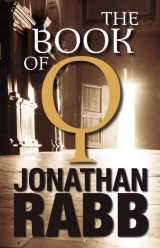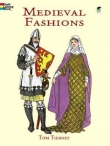
Текст книги "The Book of Q"
Автор книги: Jonathan Rabb
Жанр:
Триллеры
сообщить о нарушении
Текущая страница: 9 (всего у книги 28 страниц)
“Pillar of salt?” he said with a smile.
With a burst of energy, she threw both her hands into the air. “ Up. It goes up. True ascent. You have to read the transcriptions from bottom to top. That’s where the acrostics are.”
He looked at the sheets; it was staring right up at him. “Form following content.” He nodded.
“Exactly. The message is in the ascent. It’s really quite marvelous.”
“Granted, but I still don’t see what’s-”
“So earth-shattering?” she cut in, nodding to herself as she focused on the pages near the desk. “Neither did I for nearly an hour. Each acrostic produced coherent sentences, but their overall meaning wasn’t clear-nothing more than unconnected catchphrases. I can’t tell you how frustrating that was.”
“I’ve worked with you before, remember? No broken plates this time?”
“That was an accident.” She waited. “And no. Just a few snapped pencils.”
“Then it couldn’t have been that long before you figured it out.”
“You know,” she said, “I’m beginning to like you less and less.”
He laughed. “I’m sure you are. You found the answer in the epistles, didn’t you?”
Her eyebrows rose. “You are a clever boy.”
“Each one was ascribed to one of the five Old Testament prophets.” He nodded, “Which, of course, was impossible.”
“Exactly. Oh, I wish you’d been here a few hours ago. Would have saved me an immense amount of time.”
“Not to mention pencils.” He smiled. “So why did the writers choose those names?”
“Why indeed?” she nodded, another cigarette emerging to fuel the fire. “To give the letters an added force, a certain sanctity? Maybe, but the very fact that each one included the written prayer was more than enough to set it apart. There had to be something else, didn’t there? It was then that I began to think that the entire scroll might be based around the idea of ascent, or at least of looking at things from bottom to top. More of the gnosis. It had worked with the acrostics, so why not with the prophets, who just happen to be the most sacred within the Manichaean system?” A long drag. “Maybe their names were meant to focus our attention not on the sacred, but on the profane.”
“Another way of flipping everything on its head. That’s very good.”
“Yes. I thought so.” She nodded, smoke pouring from her nose. “So that’s what I did. And that’s when the acrostics finally made sense. I noticed that anytime there was a reference to a metaphoric path taken as part of the ‘heavenly ascent’ in one of the epistles, there was a line from the acrostic that directly corresponded to it and, in a very real sense, brought it down to earth. For example, in that one there,” she said, pointing to a page a few rows up from the desk, “the letter describes the moment when the writer, calling himself Enosh, ‘followed the hand of the Paraclete into a garden of scented chestnut trees and found sustenance.’ In the acrostic that precedes the letter, there’s a sentence that reads, ‘In Trypiti, chestnuts grow lush.’ Now Trypiti, as you know, is a town on the northeasternmost peninsula of Greece.” Pearse didn’t know, but, naturally, he let it pass. “I also saw that the word chestnutappears nowhere else in the acrostic or the letter. So it went. With each new allusion in the letter, the acrostic provided a real-world connection. And the further along I read, the greater the detail-location, direction, even distances. Between eight and ten such references in each twosome throughout the entire scroll.” She waited before continuing. “The prayer and epistles aren’t about ethereal quests for knowledge; they’re about one very specific quest. Here. In the world of the material.” She seemed to be on the verge of giggling. “What makes the scroll so earth-shattering is that it turns out to be an ingeniously coded map.”
Dona Marcella placed the ring on the white linen tablecloth, then laid the napkin across her lap. Three silver-domed dishes stared up at her. She removed the first to find egg whites, fruit, and a perfect square of clear gelatin; the second, wheat toast; the third, that awful concoction her doctors insisted on, grainy gray lumps peppered with some sort of chalky crystal. Her fight against cholesterol. Better now than later, they’d said. Take a stand against those evil foods. If only they knew.
She placed the lid back on the third and started in on the eggs. Dry and bland. She scanned the table for salt. None. They were making this difficult.
The train ride had just over an hour before Barcelona, four private cars hurtling through the Spanish countryside. She preferred it to flying, something about the numbing suspension of an airplane. At least on the train, she could feel the movement. That she was forced to use commercial carriers, unlike her father and grandfather before her, never seemed to bother the contessa in the least. The railway men were courteous, efficient, and accommodating. What more could she ask? None of her family understood. Even her youngest niece-already at work on her first marriage-had encouraged her to “join them in the modern age.” There was enough in Dona Marcella’s life that screamed of the late twentieth century; she certainly wasn’t going to give up her one link to a simpler time. Half past ten, Rome. Good night’s sleep. Barcelona by morning. Quaint, but ideal.
An idiosyncrasy to keep everyone guessing. A lesson she had learned from her father. With no sons of his own, he had brought her into the Manichaean fold early on, something virtually unheard of within the brotherhood. At most, a handful of women had ever been made privy to the inner workings, but the count had known his daughter was more than capable. He had also known it would set her apart. The amount of money she had funneled out of Spain on Franco’s death alone had indicated her special talents. So unexpected from a woman. Keep them guessing. Keep them on their toes.
It was the role her father had trained her for, the role he himself had played before her. A watchdog, of sorts, someone to maintain their focus, keep their sights on the prize. So fitting a role for a woman among men.
She had left the sitting room car much as he had designed it, cutting-edge furnishings for the mid-1960s, sleek, straight lines of Danish craftsmanship, sofa, chairs, a card table bolted to the floor. A few pictures hung in what little space had been left between the windows, snatches of her extended family, no children of her own, but enough nephews, nieces, and even a few grand-nieces-parties, hunts, someone windsurfing-to give it that neatly cluttered look. She liked to take her breakfast here rather than in the more elegant dining car. Brighter, less formal. The hint of her father.
It was also far less intimidating to those she brought along as her guests.
“You’re sure you won’t give me a small piece of your yolk?” she asked, a naughty glint in her eyes. “I won’t tell if you won’t.” The man began to respond. “No, I won’t put you in that position,” she continued. “After all, you were nice enough to meet the train this early, and on such short notice.” A forkful of fruit now hovered above her plate as she spoke. “I’m sure it must be something of an inconvenience for you.”
“Not at all,” he replied. In his late forties, and wearing a suit to rival her own tastes, Col. Nigel Harris looked the perfect product of Eton and Sandhurst, wide face and high forehead below a neatly combed crop of ash blond hair. It was clear he’d spent time in the field, his skin a leathery red; what was so often that blotchy pink with Englishmen was smooth yet rugged here. A scar just below his left eye was a reminder of his final foray during the NATO mop-up in Bosnia, the explosion of a land mine sending him off after twenty-five years of service. They’d told him the eye would go sometime in the next five years. Complete blindness within ten. Not much time, then, to make a lasting impression.
“I don’t think that’s entirely true, Colonel, but you’re very nice to say so.” She brought the fruit to her mouth, chewing slowly, aware that he was showing no signs of impatience. Promising. “I’d imagine your schedule is now quite full, both in England and the United States.”
“There’s a bit of a demand, if that’s what you mean.”
One would have been hard-pressed to describe any of his individual features as handsome, and yet his bearing, along with a highly fit body-posture firm, though far from rigid-made him a very attractive man, as easy with power as without it. Except for the eyes, ironically enough. There, if one were to strip away the soldier’s veneer, lay the subtle shadings of an unfettered ambition. Dona Marcella had seen the signs too often not to recognize them. It made him all the more desirable.
She let a practiced smile crease her lips. “You’re not on Nightlinenow, Colonel. False modesty doesn’t play so well here.” Again, his reaction was what she had hoped for. A momentary grin, a single bob of the head. “I will tell you that I found your sudden departure from the Testament Council rather odd.”
“How so?”
“A heretofore minor organization becomes the new image of Christian politics, with you at its helm. No doubt a few feathers were ruffled, but they must have realized you were the one responsible for their newfound legion of followers. That must have put you in a position of considerable influence.”
“Or made me the poster boy for ‘one more shameful abuse of the cult of personality.’ The Mirrorwas never one to stint on its appraisals.”
“Still”-she stabbed at a piece of fruit-“the Christian voice was being heard.”
“Evidently not loud enough, given the results of the last parliamentary elections.”
“Your membership was growing every day. Given time-”
“We would have been marginalized.” He showed no hesitation in challenging her, a measured deference as he spoke. “I really had no interest in being a gadfly for the next forty years, Contessa. The army taught me the futility of that. The council has influence now, but it has no idea how to use it.”
“Christian leadership doesn’t have quite the same cachet as political leadership?” It was time to see how well she understood her guest.
“They’re not mutually exclusive.”
“I think Tony Blair might have something to say about that.”
“Yes, and that’s the problem.” A dusting of sugar for his strawberries as he spoke. “He’s a rather limited target, wouldn’t you agree? The British Protestant doesn’t have quite the same zeal as one finds elsewhere.”
“As I said, I’ve noticed your widening scope, Colonel. You’ve become very popular in the States.”
“For the moment, yes. They seem … intrigued. Or it might just be the accent.” Another smile.
“Or the charm,” she countered.
He waited. “As I see it, they appear to have a genuine yearning for something beyond the cold manipulations of partisan politics, beyond the arbitrary whims of market economies. It’s beginning to show in the rest of Europe, as well. Unfortunately, we English are always just a few steps behind on these sorts of things. People want something more stable, perhaps, if I may say, eternal.” He placed the spoon back in the bowl. “Faith has become rather attractive again, and the Americans seem to be leading the way. Difficult not to make them a focus.”
“Then your choice to leave the council,” she answered, “seems even more perplexing.”
“Not at all,” he said, adding a touch of cream. “The TC was always a bit too parochial. We fell into the same trap that snared the Christian Coalition in the States. We became a tool of the radical right. One can’t expect the voice of a fringe element to be the lodestone for mainstream Christians. Never really a chance for political change there. No, my choice to leave the council was not the least bit perplexing.”
“But you still believe there’s a large constituency out there eager for your kind of leadership.” She let the phrase sit for a moment before continuing. “That’s why you’re here.”
“Yes.”
“And you think I can help.”
“Yes.”
For several seconds, Dona Marcella peered at the face across from her. She then slowly speared another piece of fruit, brought the fork to her mouth, and stopped, the melon tantalizingly close to her lips. Again, she stared at her guest. “But I’m a Catholic, Colonel Harris.”
He held her gaze for a moment, then turned to his strawberries. “So they tell me.”
The contessa watched him as he ate-healthy mouthfuls, though never more than he could manage. A refined precision, tipping the bowl ever so slightly away from himself so as to spoon out the last of the cream. “Faith isn’t a tool for political gain, Colonel. Neither are the structures that guide it. As I understand it, they serve nothing other than themselves. I’m not sure we agree on that.”
For several seconds, he remained perfectly still. Then, very slowly, he slid the bowl to the side and placed his hands flat on the table. He seemed content to smooth out the cloth, eyes fixed on the receding waves of white linen as he formulated his response, no doubt a well-worn tactic. When he was ready, he looked up, an unexpected severity in his expression. “Complacency, Contessa, is what tore the church apart five hundred years ago. Nothing more. I imagine a thousand years of certainty will do that to a monolith. And what began as a much-needed period of reassessment became that tool against which you’ve just warned me. Matters of faith placed a distant second to political expedience; a debate about rituals and hierarchy became the seed of our own demise. With each step away from one another, we eroded the one thing that had permitted us to define the boundaries of an uncertain world-cohesion. And yet, remarkably, the Christian faith survived despite that upheaval. Or perhaps because of it. I’m really no scholar. More likely than not, though, it maintained itself because nothing much stood up to challenge it. We were the only game in town, as the Americans like to say.” His gaze seemed to intensify. “We don’t have that luxury anymore. There are far more dangerous threats to us now than our own self-recriminations.”
She had expected more of the politician, less of the pedagogue. Another point in his favor. Fully aware he was testing the waters, she pushed further. “Such as?”
“Growing pains.” Before she could ask, he explained. “Fifteen hundred years ago, more or less, Mr. Mohammed leapt from his rock. Fifteen hundred years after the birth of Jesus Christ, our Mr. Luther emerged to challenge the existing authority. Growing pains,” he repeated. “This time, however, those coming of age aren’t aiming their recriminations at themselves. This time, it’s a godless world they’re after, and our Luther has become an Islamic fundamentalist. The trouble is, this go-round, there’s nothing strong enough to rein them in. And they’ve much deadlier toys than we ever did.”
“So you’re proposing a Tenth Crusade, Colonel?” she said somewhat sardonically.
“Holy war cuts both ways, Contessa.”
For a moment, she wasn’t certain just how seriously he was taking himself. “And you really believe they pose that kind of threat?”
“It’s not what I believe that matters. The threat is simply a tool. We didn’t go into Iraq because Saddam was killing innocent Kurds. We went in because we needed to protect Kuwaiti oil. Not likely that NATO would have garnered much public support for the latter. Saddam was the threat. Saddam was enough. You want to bring a disjointed Christian voice together, give them something to rally around.”
“I see.” The politician had emerged.
“And the best guide, I’ve always thought, is the cinema.” He had expected her surprise. “Oh, yes. Twenty years ago, the villain came in the form of the onetime Nazi; ten years ago, he was the renegade Communist. Now, he’s the Arab gone mad. If that’s what the public is buying, why not sell it to them wholesale? Does it really matter how genuine the threat is?”
“So what separates us becomes far less important than what connects us?” When he didn’t answer, she asked, “Is that what you’re saying, Colonel?”
His expression softened. “I believe what I’m saying is that we would be foolish not to use everything at our disposal, given the situation. As long as we can strengthen our position, does it really matter how we manage it?”
Watching him, she still couldn’t be sure if what he said had come from the heart of a zealot or from the mind of a practiced politician. Whatever the answer, she realized Stefan had been right. Col. Nigel Harris would be useful in the months to come.
The question was, Who would be helping whom?
“And, of course, you’ve already started managing it.”
“Of course.”
She waited. “Well,” she said, bringing the napkin to her lips, then laying it on the table. “You’ve given me so much to think about.” She stood, then Harris. “Please, sit down. Finish your breakfast. If you need anything else, just ring for it. I have some things I need to finish up before we arrive. I believe we’ll have a car waiting for you in Barcelona.”
“Very kind.”
She nodded and stepped out from behind the table. At the door, she turned. “So nice to have met you.”
“The pleasure was all mine.”
Another nod; she stepped out into the corridor and immediately into the adjoining room.
Stefan Kleist was standing in front of a two-way mirror, watching the colonel, who was now buttering a piece of toast.
“Well?” she said, kicking off her heels and moving toward him.
“Hard to know how easily we’ll be able to control him.”
“My thoughts exactly.”
“There’s always one way.”
“Jealous?” She pressed up against his back; even without her shoes, she was a good inch taller than Kleist. She reached around his waist and unzipped his fly. Both of them continued to gaze at Harris as she probed within, the familiar thickness soon in her hand, his arousal growing as she began to stroke him with her fingers. She turned Kleist toward her, all the while her eyes fixed on Harris, who had pulled a cell phone from his pocket and was now making a call.
“Can we monitor that?” she asked as Kleist pulled up her skirt, leaving only a garter belt, never any panties, for him to deal with.
“It’s taken care of,” he said as he leaned back against the glass and hoisted her onto his thighs. He reached for his belt, but she stopped him.
“The zipper will scrape,” he said.
“I know,” she answered, and pulled him inside of her.
His thick hands clutched at her thighs, driving her up and down, momentary twinges of air from him each time he got caught on the zipper. It only made her buck harder.
“Quiet,” she whispered, her eyes staring at the scar on Harris’s face, watching it move as he talked. She could imagine licking at it, running her tongue along its narrow groove. She came, an instant later the feel of Kleist releasing inside of her. He continued to shudder, always a final few waves before he began to breathe again.
She wondered if it would be that easy with Harris.
“‘Map’?” The word seemed to catch Pearse by surprise. “To where?”
“To whatmight be a better question,” replied Angeli.
“Fine. But they obviously meant to hide it from everyone except a very select few. I can’t imagine too many Manichaeans would have been able to transcribe the prayer correctly.”
“Given the oral tradition, none. And even if they had, the transcriptions would have been meaningless without the letters. You needed all of the parts together, which, as it turns out,” she explained, “divide quite neatly into three subsections.”
“How appropriate.”
“Yes.” She smiled. “Anyway, each of the subsections contains five letters-one each from Adam, Seth, Enosh, Shem, and Enoch. The first set-the earliest chronologically-gives general geography. Whatever they were hiding, it moved around quite a bit during those first few centuries. They even had it in the Taurus Mountains and Armenia-wild and woolly places, to be sure-for several hundred years. By the end of the eighth century, however, it finds its permanent home at the tip of the Greek peninsula, on Mount Athos. I had always thought that the first Athos settlements didn’t pop up until the tenth. Obviously, the Manichaeans were there far earlier.
“Athos then becomes the focus of the next five letters, highlighted by scads of detail about a once-vibrant Manichaean monastery called St. Photinus. According to the Athos directory on the Internet, Photinus became a Greek Orthodox monastery sometime in the eleventh century.”
“So you think there’s a link between these Manichaeans and the Greek church?”
“The Greeks?” It took her a moment to understand what he was saying. “Oh, I see what you mean. No. Nothing like that. The Greek monasteries appeared on Athos only toward the end of the tenth century, before the Eastern church split with Rome.”
“And Photinus predates the other monasteries on the mountain?”
“Oh, yes. According to this, by a good five hundred years. Clever, these Manichaeans. They picked a very appropriate saint, wouldn’t you say?” When Pearse didn’t answer, she said, “Photinus? From phos… the Greek word for ‘light.’ It all seems to work, doesn’t it?”
Pearse’s expression was enough to get her back on track. “Anyway, the Athos monastery must have been built around 380. According to the directory, the Photinus monks chose the spot because it was ‘as close to heaven’ as they thought they could get. The Manichaeans evidently infiltrated the place sometime during the eighth century. And given what the letters say, there were several such infiltrated monasteries scattered throughout Greece and Macedonia from the sixth century on.”
“The unattractive side of Manichaeanism.”
“Exactly.”
“And the last cycle of letters?”
“That’s the one they reserved for the ‘what.’” She looked over at him. “Unfortunately, they’re not as forthcoming-even in code-about the very thing they went to such lengths to protect. But there’s enough there to suggest it was something rather extraordinary.”
“In more than academic terms?” he asked.
The exuberance of the last ten minutes seemed to slip from her face, her earlier apprehension resurfacing. “If something that could undermine the legitimacy of the Catholic church is more than just academic fancy, then yes.” Again, she waited. “They claim to have something that could pave the way for their own true church to emerge. Something very real to them, of ‘highest authority,’ higher even than Mani himself.”
“Something like what?”
“I don’t know. The language is very vague. As far as I can tell, it’s something that predates Mani, even the Gospels. A parchment written in Greek. That’s the most specific I can get. What’s most unsettling, though, is that it’s clear they had a substantial number of cells scattered throughout the empire with which to unleash its power.”
“Even as late as the tenth century?”
“Yes. The ‘mapping’ of the last two letters charts the locations of large groups of very powerful officials within the Catholic hierarchy who were tied to the Manichaeans. Names even I recognize, and it’s not my period.”
“Nice excuse.”
“All of it suggests,” she said, ignoring the barb, “that they never abandoned Photinus, and instead simply blended in, as was their wont. The same evidently held true throughout the rest of Europe. Whatever they had hidden away in Athos, they clearly had the resources to make the most of it. The question is, Why didn’t they use it when their network was so well established?”
“Maybe they did, and found out it wasn’t as powerful as they’d thought.”
She shook her head. “No. The letters are explicit in their warning that those listed remain prepared for ‘the great awakening,’ whatever that’s supposed to mean. There’s no battle cry to action, no sense that the Messiah’s return is imminent, even with the millennium approaching. More than that, had they invoked whatever they were hiding on Athos, there would have been mention of a Manichaean heresy, or at least something like it, at some point in the history of the church. As I said, the Manichaeans disappear in the West after the fifth century-no mention of them, save for some false attributions to the Cathars, Bogomils, and Albigensians.”
“And you think they survived.” Statement, not question. An image of the Austrian flashed into his mind.
“Who knows how long they tucked themselves away? It’s clear from the letters that they were extremely well entrenched, and had been for centuries. Who’s to say they weren’t able to maintain the subterfuge indefinitely? For all we know, they may still be waiting. I’d say that’s more than just a little earth-shattering.” Only then did she notice the change in his expression. “And from the look on your face, I might think you agree with me.” Staring into his eyes, however, she realized it was more than that. When she spoke again, her tone was far less inviting. “Why did you come back this morning?”
The question caught him by surprise. Not sure how to answer, he hesitated. “I wanted to find out what was in the scroll.”
“Yes, but why so early?” It was the first time it had occurred to her to ask. “If you had no idea what it was … I told you I needed time, that I’d-” She stopped abruptly. For several seconds, she said nothing. “You’ve come in contact with them, haven’t you?” When he didn’t answer, she pushed further. “You knowthey’ve managed to survive. And theyknow you have the scroll.” Again, he said nothing. “That’s why you made up all that rubbish about San Clemente.”
“It wasn’t rubbish,” he insisted. “The person who gave me the scroll said it had been found in the fourth-century church.”
“Which we both know is impossible; it could never have been found there.”
“I realize that now.”
“Who?” she pressed. “Who gave you the scroll?”
Again, he waited before answering. “Someone I trust.”
“You might want to reconsider that.”
He was about to respond, when the sound of three chimes, followed by a swirl of martial music, interrupted. Momentarily disoriented, Pearse tried to locate its source.
Without any reaction, Angeli checked her watch, then reached behind a pile of books at the foot of the desk. With her back still to him, she said, “The early news. Must be six-thirty.” A moment later, she returned with a portable clock radio in her hands, the blue neon digits confirming the hour. “I sometimes fall asleep in here. Never can find the button to-” The first words out of the commentator’s mouth stopped any further searching.
“A month of disbelief and prayers comes to its somber conclusion. Good morning, this is Paolo Tonini. Ezio Palazzini, the supreme Pontiff of the Catholic church, ordained Pope Boniface the Tenth, has died at the age of sixty-seven. The news of his sudden illness sent shock waves throughout the Catholic community when it was announced twenty-six days ago. Sources at the Vatican have confirmed that His Holiness passed away in his sleep. …”
In rote response, Pearse quietly crossed himself, offered a few words of prayer. Angeli jumped up, placed the clock on her seat, and strode to the far corner of the room. There, nestled among various pieces of furniture, she located a small television set behind a music stand laden with clothes and papers. Pulling the mess to the side, she took a handkerchief from one of her pockets and, with three or four quick flicks of the wrist, dusted the screen. She then began to examine the knobs on the console, lighting on the one farthest to the left. The black void came to life, showing old footage of the Pope in St. Peter’s, a voice detailing the accomplishments of his six-year papacy.
“Turn that off, will you,” she said, motioning back to Pearse, not once taking her eyes from the set. He switched off the radio and joined her. The Manichaeans would have to wait a bit longer.
“… a scholar, many have argued, the likes of whom hasn’t been seen in the Vatican since the fifteenth-century Pope, Pius the Second. The question now,” intoned the voice, “is naturally one of succession. Rumors have already begun to circulate within the Vatican of two prominent candidates. The first, a longtime confidant of the late Boniface, and an equally accomplished scholar, is Giacomo Cardinal Peretti, Archbishop of Ravenna.” A photo of the Italian, taken during an audience with the Pope, filled the screen. “At fifty-two, Peretti is one of the younger members of the Sacred College, and is considered by many its most outspoken liberal voice. The other”-a second picture now split the screen with Peretti’s, revealing a crisp Alpine background somewhere in the Tyrol-“is Erich Cardinal von Neurath, Archbishop Emeritus of Linz, and, at sixty-eight, a champion of the Vatican’s most recent attempts at reconciliation with European Protestants through his work with the encyclicals on faith. Both have strong support in the conclave, although Peretti …”
The words seemed to trail off as Pearse stared at the images. Something familiar about them, something that had little to do with either of the candidates. He stepped closer to the screen, his eyes settling on a third figure, a man directly to the left of von Neurath. He stood behind the cardinal’s shoulder, his face, though, obscured in shadow. Pearse bent over, trying to make it out, Angeli aware of his sudden interest.
As the picture came clearer, Pearse felt a tightening in his chest.
There, staring back at him, was the man from the Vatican. The Austrian who had chased him from his home. Remember the monk.
Unable to take his eyes from the screen, Pearse felt the blood slowly drain from his face.








